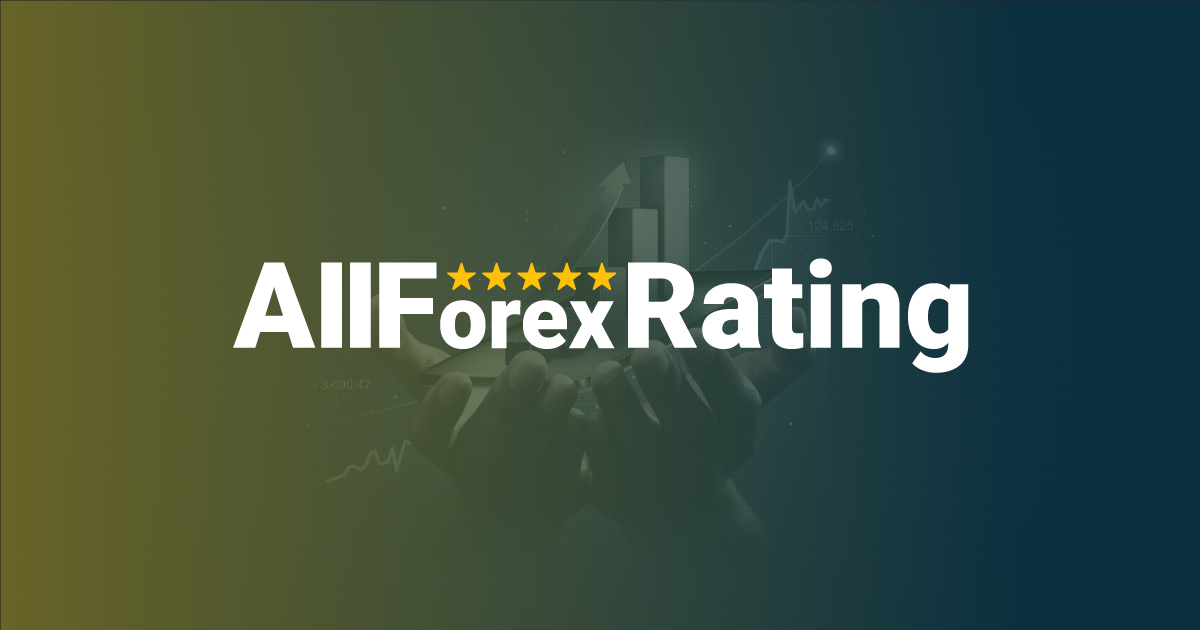What Is the Difference Between Forex and Stocks Market ?
What Is the Difference Between Forex and Stocks Market ?
Forex or foreign exchange refers to trading one international currency against another. With forex trading, you can profit by speculating whether different currency pair prices will appreciate or depreciate.
-

- by ALLFOREXRATING.COM
- 21st June 2022 | Post Views: 1342

Forex and stocks differ in terms of leverage, regulation, liquidity and market volatility. While forex is a more liquid market and leveraged, stocks are more regulated and less volatile.
In this article, we discuss the critical differences between forex trading and stock trading in depth.
What is forex?
Forex or foreign exchange refers to trading one international currency against another. With forex trading, you can profit by speculating whether different currency pair prices will appreciate or depreciate.
What is stock?
A stock refers to a fraction of ownership in a particular company. Stock trading is the buying and selling of some part of the company (known as shares) to benefit from the price fluctuations.
Forex vs Stock Market: Key Differences
Trading factors
Forex
Factors that affect the forex market are related to the countries that the currencies belong to.
Any change in the inflation, gross domestic product, interest rates, current account deficit, employment level, and more of the country can positively or negatively impact forex trading prices.
Any positive change in these factors (like a decrease in inflation, increase in employment level, increase in the gross domestic product) leads to that country’s currency appreciation. In contrast, any negative change in these factors (like a fall in interest rates, increase in current account deficit, increase in political instability) leads to that country’s currency depreciation.
Stock
A stock’s trading price primarily depends on the financial health and stability of the company that the stock belongs to. Any change in company policies, innovations and introductions, increase or decrease in corporate earnings, and a shift in expansion plans comprise the overall company’s health.
Changes in the company’s industry also affect the stock trading prices. This means that if there is a positive change (like an increase in corporate earnings, an innovation in the industry, solid expansion plans), the price of the stocks will increase. Whereas, if there is a negative change (like an industrial crisis, fall in corporate earnings, decrease in company’s profitability), the price of the stocks will decrease.
Trading hours
Forex
One can trade in the forex market at any hour of the day, from any location in the world. The market is open 24 hours every day, from Monday to Friday, to avoid overlapping time zones.
Stock
Each stock market around the globe has its own set trading hours across the week. For instance:
- The Australian Stock Market trades from 10:00 am to 4:00 pm from Monday to Friday.
- The London Stock Exchange is open from 8:00 am to 4:00 pm from Monday to Friday.
Leverage
Forex
Forex trading offers significantly higher leverage than stock trading. The leverage limit in the forex market depends on the broker you are trading with, but one can expect to trade with as much as 50:1 or 100:1 leverage. This means that for every $1 in your account, you can trade positions worth $50 or $100, respectively.
Stock
The stock market also offers leverage trading, but most brokers only allow leverages up to 2:1. This means that for every $1 in your account, you can trade positions worth $2. If you are an intraday trader and are able to maintain an account balance of $25,000 or more, you can trade with a leverage of 4:1.
When trading stocks, there are some qualifying requirements that need to be met if you wish to trade with leverage. For example, some brokers require you to maintain a minimum account balance or the entire purchase price of the stock you want to trade to be eligible to trade with the provided leverage.
Liquidity and volatility
Forex
The forex market is more volatile than the stock market since several social, financial, political and economic factors affect the currency prices. Since the forex market is also the largest financial market in the world, large volumes of currencies are traded daily, making it more liquid.
Stock
The stock market is less volatile than the forex market since the stock prices are primarily only affected by changes in the company to which the stock belongs. The overall stock price is not affected by other economic, political or social factors unless an adverse situation occurs.
It is also very liquid as stocks are traded in high volumes, but it is less liquid than the forex market since currency volumes traded in the forex market are more than double of stocks traded in the stock market.
Trading range
Forex
There are around 180 currencies traded in the forex market, out of which 18 pairs represent the major currency pairs (the pairs that include USD as one of the currencies) which are the most popular among traders. This narrows the focus of forex traders as they only focus on a handful of currency pairs in the forex market.
Stock
Stock exchanges across the globe have thousands of stocks listed on different exchanges. For instance,
- The Australian Stock Market has more than 2,000 listed companies.
- US Stock Market has more than 3,000 listed companies.
- Since there are thousands of stocks in the stock market, the focus of stock traders is broader.
Which is better: Forex VS Stock Trading?
Choosing to trade forex vs stocks depends on your trading goals, objective, and style. If you want to benefit from the high volatility and liquidity and trade the largest market in the world, forex is a better-suited option. However, stocks are a better trading option if you have a low-risk appetite.
Write a Comment
What Is the Difference Between Forex and Stocks Market ?
Forex or foreign exchange refers to trading one international currency against another. With forex trading, you can profit by speculating whether different currency pair prices will appreciate or depreciate.

Forex and stocks differ in terms of leverage, regulation, liquidity and market volatility. While forex is a more liquid market and leveraged, stocks are more regulated and less volatile.
In this article, we discuss the critical differences between forex trading and stock trading in depth.
What is forex?
Forex or foreign exchange refers to trading one international currency against another. With forex trading, you can profit by speculating whether different currency pair prices will appreciate or depreciate.
What is stock?
A stock refers to a fraction of ownership in a particular company. Stock trading is the buying and selling of some part of the company (known as shares) to benefit from the price fluctuations.
Forex vs Stock Market: Key Differences
Trading factors
Forex
Factors that affect the forex market are related to the countries that the currencies belong to.
Any change in the inflation, gross domestic product, interest rates, current account deficit, employment level, and more of the country can positively or negatively impact forex trading prices.
Any positive change in these factors (like a decrease in inflation, increase in employment level, increase in the gross domestic product) leads to that country’s currency appreciation. In contrast, any negative change in these factors (like a fall in interest rates, increase in current account deficit, increase in political instability) leads to that country’s currency depreciation.
Stock
A stock’s trading price primarily depends on the financial health and stability of the company that the stock belongs to. Any change in company policies, innovations and introductions, increase or decrease in corporate earnings, and a shift in expansion plans comprise the overall company’s health.
Changes in the company’s industry also affect the stock trading prices. This means that if there is a positive change (like an increase in corporate earnings, an innovation in the industry, solid expansion plans), the price of the stocks will increase. Whereas, if there is a negative change (like an industrial crisis, fall in corporate earnings, decrease in company’s profitability), the price of the stocks will decrease.
Trading hours
Forex
One can trade in the forex market at any hour of the day, from any location in the world. The market is open 24 hours every day, from Monday to Friday, to avoid overlapping time zones.
Stock
Each stock market around the globe has its own set trading hours across the week. For instance:
- The Australian Stock Market trades from 10:00 am to 4:00 pm from Monday to Friday.
- The London Stock Exchange is open from 8:00 am to 4:00 pm from Monday to Friday.
Leverage
Forex
Forex trading offers significantly higher leverage than stock trading. The leverage limit in the forex market depends on the broker you are trading with, but one can expect to trade with as much as 50:1 or 100:1 leverage. This means that for every $1 in your account, you can trade positions worth $50 or $100, respectively.
Stock
The stock market also offers leverage trading, but most brokers only allow leverages up to 2:1. This means that for every $1 in your account, you can trade positions worth $2. If you are an intraday trader and are able to maintain an account balance of $25,000 or more, you can trade with a leverage of 4:1.
When trading stocks, there are some qualifying requirements that need to be met if you wish to trade with leverage. For example, some brokers require you to maintain a minimum account balance or the entire purchase price of the stock you want to trade to be eligible to trade with the provided leverage.
Liquidity and volatility
Forex
The forex market is more volatile than the stock market since several social, financial, political and economic factors affect the currency prices. Since the forex market is also the largest financial market in the world, large volumes of currencies are traded daily, making it more liquid.
Stock
The stock market is less volatile than the forex market since the stock prices are primarily only affected by changes in the company to which the stock belongs. The overall stock price is not affected by other economic, political or social factors unless an adverse situation occurs.
It is also very liquid as stocks are traded in high volumes, but it is less liquid than the forex market since currency volumes traded in the forex market are more than double of stocks traded in the stock market.
Trading range
Forex
There are around 180 currencies traded in the forex market, out of which 18 pairs represent the major currency pairs (the pairs that include USD as one of the currencies) which are the most popular among traders. This narrows the focus of forex traders as they only focus on a handful of currency pairs in the forex market.
Stock
Stock exchanges across the globe have thousands of stocks listed on different exchanges. For instance,
- The Australian Stock Market has more than 2,000 listed companies.
- US Stock Market has more than 3,000 listed companies.
- Since there are thousands of stocks in the stock market, the focus of stock traders is broader.
Which is better: Forex VS Stock Trading?
Choosing to trade forex vs stocks depends on your trading goals, objective, and style. If you want to benefit from the high volatility and liquidity and trade the largest market in the world, forex is a better-suited option. However, stocks are a better trading option if you have a low-risk appetite.
| # | Forex Broker | Year | Status | For | Against | Type | Regulation | Leverage | Account | Advisors | ||
| 1 |  |
JustMarkets | 2012 | 36% | 4% | ECN/STP | FSA, CySEC, FSCA, FSC | 1:3000* | 1 | Yes | ||
|---|---|---|---|---|---|---|---|---|---|---|---|---|
| 2 |  |
Hantec Markets | 1990 | 35% | 6% | ECN/STP | ASIC, FCA, FSA-Japan, FSC, JSC | 1:2000* | 100 | Yes | ||
| 3 |  |
Valetax | 2023 | 35% | 1% | ECN/STD | FSC | 1:2000* | 10 | Yes | ||
| 4 |  |
KCM Trade | 2016 | 32% | 3% | ECN/STD | FSC | 1:400* | 100 | Yes | ||
| 5 |  |
Plotio | 1983 | 31% | 2% | STP | HKGX, ASIC, SCB | 1:300* | 200 | Yes | ||
| 6 |  |
FISG | 2011 | 30% | 1% | ECN/STD | FSA, CySEC, ASIC | 1:500 | 0.01 | Yes | ||
| 7 |  |
ATFX | 2017 | 25% | 3% | Broker/NDD | FCA, CySEC, FSCA | 1:400* | 100 | Yes | ||
| 8 |  |
Octa | 2011 | 20% | 3% | ECN/STD | Regulation: CySEC, MISA, FSCA and FSC | 1:1000* | 5 | Yes | ||
| 9 |  |
Youhodler | 2018 | 20% | 2% | Exchange | EU (Swiss) licensed | Up to 1:500 | 100 | Yes | ||
| 10 |  |
Uniglobe markets | 2015 | 20% | 3% | ECN/STP | Yes | Up to 1:500 | 100 | Yes | ||
| 11 |  |
IEXS | 2023 | 20% | 6% | ECN/STP | ASIC, FCA | Up to 1:500 | 100 | Yes | ||
| 12 |  |
TradeEU | 2023 | 18% | 4% | CFDs | CySEC | 1:300* | 100 | Yes | ||
| 13 |  |
RoboForex | 2009 | 16% | 4% | ECN/STD | FSC, Number 000138/333 | 1:2000* | 10 | Yes | ||
| 14 |  |
Axiory | 2011 | 15% | 5% | Broker, NDD | IFSC, FSC, FCA (UK) | 1:777* | 10 | Yes | ||
| 15 |  |
FBS | 2009 | 13% | 4% | ECN/STD | IFSC, CySEC, ASIC, FSCA | 1:3000* | 100 | Yes |











